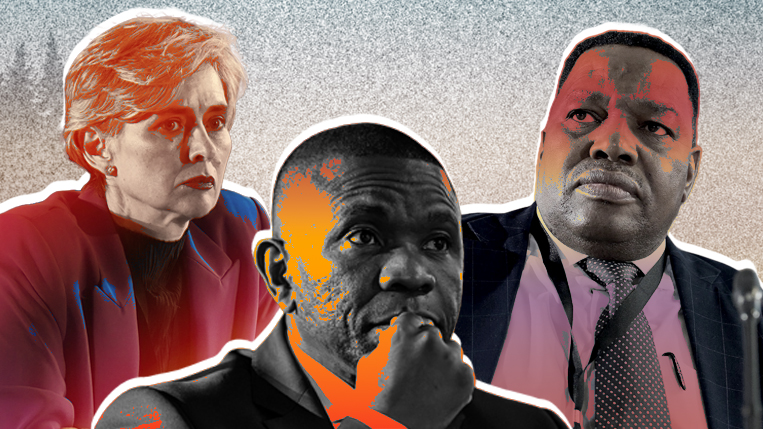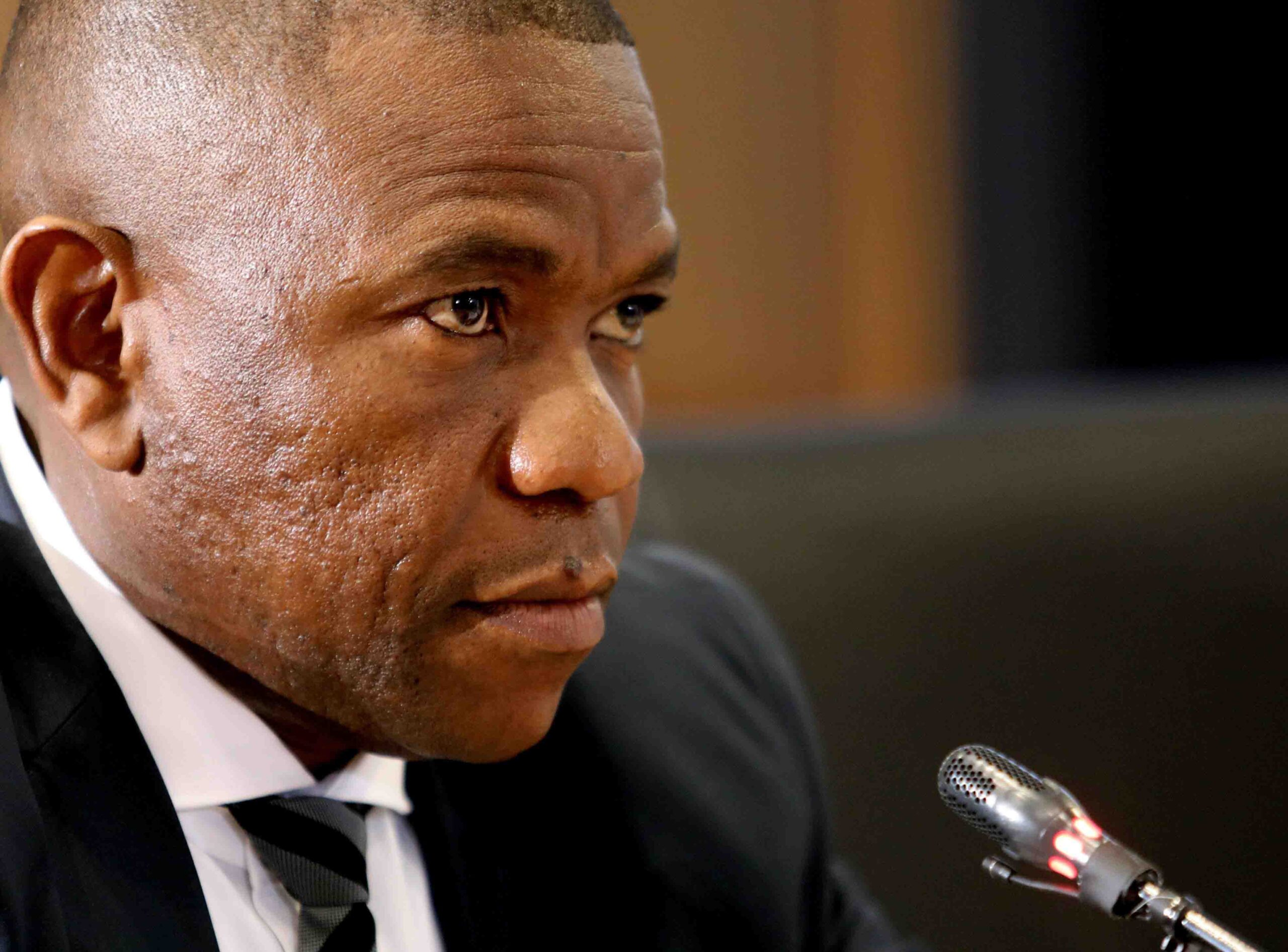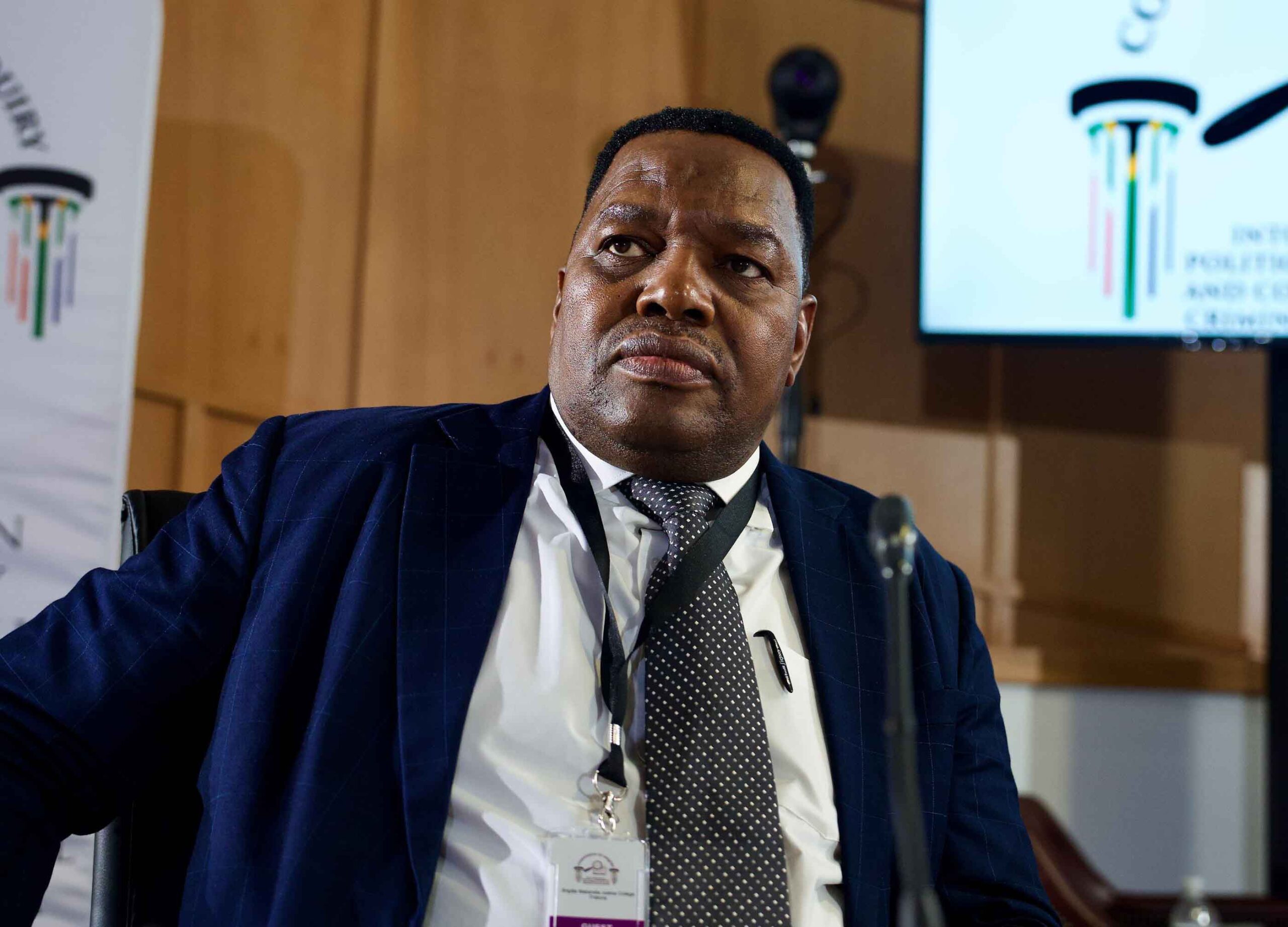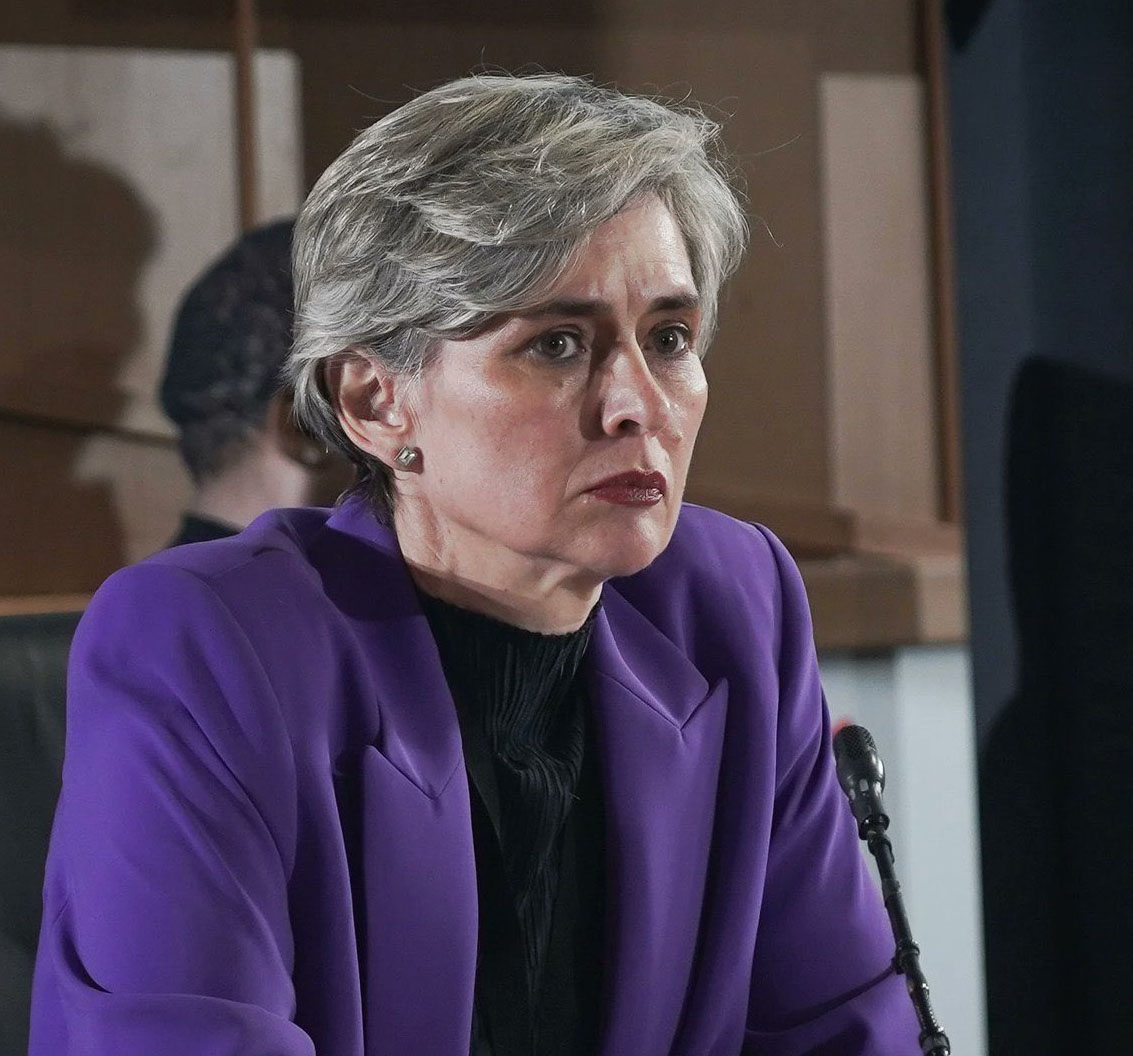
Explosive revelations continue at the Madlanga Commission, where SAPS senior officials are exposing deep-rooted interference—Lt-Gen Nhlanhla Mkhwanazi named high-profile figures, including Bheki Cele, Senzo Mchunu, and Brown Mogotsi, in a string of corruption claims, while Police Commissioner Fannie Masemola highlighted internal tensions over the sudden Political Killings Task Team (PKTT) shutdown.
Adding legal weight, Maj-Gen Petronella van Rooyen stated that Minister Mchunu had no authority to disband the task team, warning of serious constitutional overreach.
Meanwhile, in sports, Bafana Bafana face a possible 3-point deduction in the World Cup qualifiers, a blow that could tighten the group standings. In breaking news, the JCPS Cluster has confirmed that Tebogo G. Mashego has not been arrested, shutting down swirling rumours.
And in tragic travel news, a passenger sadly passed away during a FlySafair flight, prompting an outpouring of concern from the public and airline.
Check out all the top stories below:
PASSENGER DIES MID-FLIGHT ON FLYSAFAIR FLIGHT

A male passenger on a FlySafair flight sadly passed away mid-flight after experiencing a medical emergency.
Kirby Gordon, a representative for FlySafair, confirmed to IOL, that a passenger sadly died during flight FA417 on Monday.
According to Gordon, the passenger had been assessed by medical staff at King Shaka International Airport before boarding and was “given the all clear” to fly.
“While in the air, the passenger’s condition deteriorated,” Gordon explained. “Our cabin crew, together with medical professionals who were among the passengers, did everything possible to assist, but tragically the person passed away before the flight landed.”
Gordon added that FlySafair’s crew are trained to handle in-flight emergencies until help becomes available. He also confirmed the incident would be reviewed internally to help improve responses going forward.
“We are also thankful to the medical professionals who stepped forward to provide support,” he said, noting that counselling services have been made available for affected passengers and support is also being extended to staff.
Following the in-flight death of a passenger aboard flight FA417, FlySafair has confirmed it is offering counselling services to affected travellers.
Source: IOL
BAFANA FACE 3-POINT DEDUCTION IN WORLD CUP QUALIFIERS, PUTTING THEM IN A TIGHT SPOT

FIFA has launched a case against Bafana Bafana for “allegedly fielding an ineligible Teboho Mokoena” during their World Cup qualifier against Lesotho in March. This development could shake up the standings in Group C.
Right now, South Africa leads the group with a three-point gap at the top after eight matches. Nigeria, sitting third, trails by six points, while Benin holds second place — a team Bafana has already beaten both home and away.
If FIFA ends up taking away three points, South Africa would drop to the same level as Benin. That would make things tight at the top, and suddenly, the final two qualifiers — against Zimbabwe and Rwanda in October — become must-wins for Hugo Broos’ side.
A points deduction wouldn’t just be a setback — it would throw the group wide open, putting pressure on a team that’s been cruising toward 2026.
MADLANGA COMMISSION: MKHWANAZI DROPS BOMBSHELLS ON SAPS CORRUPTION, NAMES CELE, MCHUNU, AND MOGOTSI

At the centre of this week’s Madlanga Commission hearings was Lt-Gen Nhlanhla Mkhwanazi, whose testimony laid out disturbing claims about political meddling and power struggles in SAPS.
At the heart of his testimony was an incident involving former Police Minister Bheki Cele. Mkhwanazi alleged that Cele attempted to interfere in an internal investigation by asking him to ease Crime Intelligence boss Dumisani Khumalo out—just when Khumalo was investigating links between SAPS generals and controversial businessmen.
This, he explained, seemed highly suspicious, especially since Khumalo was investigating SAPS deputy commissioner General Feroz Khan for alleged links to controversial businessman Brown Mogotsi and tender mogul Vusimuzi “Cat” Matlala. Mkhwanazi claimed this amounted to an obstruction of justice.
The commission also examined alleged WhatsApp conversations between Mogotsi and Matlala, which were projected in the hearing room. These messages suggested insider knowledge of SAPS operations, including the premature disbandment of the Political Killings Task Team (PKTT), the movement of sensitive dockets, and conversations involving Minister Senzo Mchunu. While Mkhwanazi didn’t confirm the authenticity of Mchunu’s involvement, he called for subpoenas to clarify the roles of all parties mentioned in the chats.
He told the commission that he only learned about the PKTT’s disbandment through a letter in January 2025. The decision, he said, was deeply frustrating and harmful to critical investigations into political killings. Mkhwanazi believed the unit was effective and alleged that Mchunu may have been “influenced” to dissolve it, possibly to protect individuals linked to ongoing investigations.
Mkhwanazi further discussed the killing of Armand Swart, an engineer working on a Transnet corruption probe. He linked Swart’s murder to organised crime, claiming it may have been a mistaken hit on someone involved in exposing tender fraud. PKTT officers were deployed to Gauteng and ultimately arrested multiple suspects tied to that case, including businessman Matlala.
Additional parts of his testimony covered alleged interference by MPs, judicial irregularities, and even comments from forensic investigator Paul O’Sullivan, who Mkhwanazi challenged to testify under oath.
He warned of a deeper issue, claiming that some individuals inside the system are working closely with outsiders, making it difficult for SAPS to carry out its duties effectively.
MADLANGA COMMISSION: MASEMOLA REVEALS TENSIONS WITH MCHUNU OVER PKTT SHUTDOWN

At the Madlanga Commission this week, National Police Commissioner Fannie Masemola delivered testimony that painted a troubling picture of tension between police leadership and the Ministry.
He recalled a meeting where Minister Senzo Mchunu lost his cool after the Political Killings Task Team (PKTT) continued working on new cases, despite Mchunu’s instruction to shut the unit down.
Masemola told the commission he found the reaction unusual, saying, “It was the first time in my career that I saw a minister angry because police had done a good job.” He explained that the meeting ended abruptly, adding, “He said he would only talk to me, not to Khumalo and the rest.”
Masemola further testified that Mchunu “stated that he did not understand why we were so adamant that the PKTT must not be disbanded,” and claimed President Cyril Ramaphosa supported the closure.
However, when Masemola briefed the Presidency on 1 February 2025, “the President was taken aback and said he would speak to Minister Mchunu.”
He accused Mchunu of undermining police work, pointing out that over 120 case dockets were left untouched after the disbandment efforts.
Originally established in KwaZulu-Natal to investigate political assassinations, the PKTT later expanded to cover similar killings in the Eastern Cape and Gauteng.
Both Masemola and KZN commissioner Lt-Gen Nhlanhla Mkhwanazi allege that attempts to shut down the unit were meant to interfere with investigations into a Gauteng-based drug cartel, which they believe operates under the protection of politically connected individuals.
He also testified that his suspended deputy, Lt Gen Shadrack Sibiya, is alleged to have close links with businessman Vusimuzi “Cat” Matlala, who has been under scrutiny for tender fraud.
Adding to the concern, Masemola revealed that three of the five investigators working on the assassination of whistleblower Armand Swart had withdrawn due to threats.
Interestingly, Mchunu himself had previously raised concerns about a R350 million tender awarded to Matlala, following complaints of poor performance.
TEBOGO G. MASHEGO HAS NOT BEEN ARRESTED, JCPS CONFIRMS!

Despite a viral video showing Amapiano artist Tebogo G. Mashego being pulled into a police van, the Justice, Crime, Prevention and Security (JCPS) cluster has confirmed that “Tebogo G. Mashego has not been arrested.”
Authorities say the singer was behaving erratically, “displayed an abnormal behaviour and allegedly acted violently,” and reportedly assaulted people for no clear reason.
Police in Laudium were forced to act, and “had to forcefully remove him from the community as he was visibly resisting.”
This incident comes after a week of online outbursts. While on tour in Nigeria, Mashego went live on Instagram claiming local promoters stranded him. He pleaded with fans to send flight money so he could return home.
Since landing back in South Africa, he’s been making headlines for all the wrong reasons — ranting on Instagram Live, accusing industry giants of owing him money, and demanding “R23-million” from DJ Maphorisa and Kabza De Small. He even made bizarre claims about witchcraft and rituals, dragging fellow artists like Young Stunna into his rants.
JCPS says the incident was about ensuring safety, not making an arrest. The unfolding drama has sparked widespread concern about Mashego’s well-being.
MADLANGA COMMISSION: MCHUNU DID NOT HAVE LEGAL AUTHORITY TO DISBAND POLITICAL KILLINGS TASK TEAM, VAN ROOYEN

Major-General Petronella van Rooyen, head of the SAPS legal services division, testified at the Madlanga Commission on Thursday, raising concern over what she described as “dangerous and unconstitutional consequences” linked to political interference in police operations.
Her testimony focused on the controversial shutdown of the Political Killings Task Team (PKTT), which she claimed was a result of direct instruction from Police Minister Senzo Mchunu.
Van Rooyen said “it was clearly an instruction by the minister,” but questioned whether it was lawful.
“In my view, he did not have that authority,” she told the commission.
Van Rooyen further said that the closure disrupted sensitive investigations into politically motivated killings, particularly in KwaZulu-Natal, leaving communities and affected families in limbo.
She said, “These were cases of national importance,” and the sudden shutdown “created an impression that the police service could be steered by political influence rather than the Constitution.”
She explained that while ministers can set long-term policing policy, they are not empowered to interfere in operational matters. Citing Section 199(6) of the Constitution, Van Rooyen stressed that this separation is meant to “insulate the police operations from undue political interference.” She added, “The goal is to ensure there’s accountability but not interference in policing.”
Van Rooyen distinguished between lawful policy and political directives, explaining that while directions can require immediate action, they must still be legal and rational. She claimed the minister’s move did not follow due process and lacked formal review of the PKTT’s progress.
She also raised concern about the internal chain of command, stating that “bypassing the national commissioner is unlawful.”
According to Van Rooyen, deputy commissioners report only to the national commissioner—not directly to the minister. She reminded the commission that Section 196 of the Constitution says no security services member should obey a “manifestly illegal order.”
Van Rooyen’s claims align with previous testimony by National Commissioner Fannie Masemola, who also alleged that Mchunu had no mandate to disband the unit.
Both officials believe the disbandment was not only unjustified but may have been an attempt to derail investigations into politically connected suspects.
She concluded with a warning that unchecked political influence could allow investigators to be removed from cases or blocked from opposing bail. “The practical implications of that… are definitely problematic and it shouldn’t be left to the executive,” she said.
Share your thoughts on this article and join the conversation on Twitter or Facebook.
The post Top Stories in AFRICA this week: Madlanga Commission, Nhlanhla Mkhwanazi, Fannie Masemola, Petronella van Rooyen appeared first on YOMZANSI. Documenting THE CULTURE.
